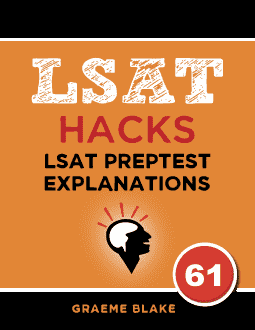QUESTION TEXT: The legislature is considering a proposed bill that…
QUESTION TYPE: Method of Reasoning
CONCLUSION: We should ban fishing in Eagle Bay.
REASONING: There would be economic impacts to ending fishing. But Eagle Bay is so polluted that it may not be safe to eat the fish caught there.
ANALYSIS: This argument makes a lateral point. The immediate concern is economic. But the author doesn’t try to minimize the economic impacts.
Instead, they argue that fish caught in Eagle Bay are dangerous. We shouldn’t be eating them at all. In that case, the economic impact is irrelevant. It doesn’t make sense to allow an activity that can only harm people.
___________
- The argument didn’t say that the toxic fish have had economic impacts. Maybe people continue to buy the fish because they aren’t aware of the danger.
- What? The argument didn’t even mention this moral principle! This can’t possibly be the right answer.
- This makes no sense. This answer refers to the opponents, and accuses them of ignoring the ban’s predictable negative effects. But opponents of the ban would naturally consider foreseeable negative effects.
Opponents would tend to ignore positive effects.
This answer might have been right if it had said “failed to weight the bans foreseeable positive effects against its negative ones”.
And yes, in English this switch in word order does completely change the meaning of the sentence. - CORRECT. This is exactly what the argument does. The risk to public welfare is the health risk due to eating contaminated fish.
- Nonsense. The ban is a ban on fishing. Fishing isn’t usually a major cause of pollution. Typically, very high pollution levels would come from some industrial activity.


Leave a Reply